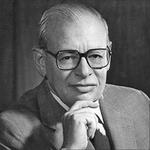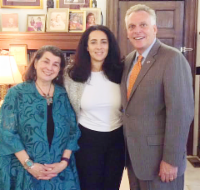by datdudejbal | May 25, 2017 | Uncategorized
Middle Tennessee State University’s (MTSU) Center for Historic Preservation is accepting proposals for its Professional Services Partnerships program. According to the Center, the partnership provides communities with an opportunity to take advantage of their staff and assistants’ knowledge and expertise at no cost. Proposals will be accepted annually, with the first deadline coming on June 1, 2017. Apply here.
The West Bemis Rosenwald School is a recipient of the CHP Partnerships. The school is considered the oldest Rosenwald School in Tennessee.

The West Bemis Rosenwald School in Jackson, Tennessee, built in 1916 to serve African-American students, stands tall after its supporters worked with the MTSU Center for Historic Preservation on a heritage preservation plan. (Photo courtesy of the Center for Historic Preservation)
Read the story by the Daily News Journal here.
by datdudejbal | Apr 18, 2017 | Uncategorized
Julius Rosenwald’s legacy includes the creation of the Rosenwald Fund Fellowship, which supported African-American intellectuals in the pursuit of advanced scholarship. Among the esteemed class of recipients was W.E.B. Du Bois, best known for his work as a civil rights activist; however, he was not the only one in his family to have received the honor. W.E.B. Du Bois’ wife, Shirley Graham Du Bois, also shared this distinction. Graham Du Bois was recently profiled in Yale Alumni Magazine.
Shirley Graham Du Bois was an intellectual and creative force of nature in her own right in the 1930s up until her death in the 1970s. Her exceptional talents as a composer and musician led her to opportunities to study at the Sorbonne in Paris and at Oberlin College, where she received both her bachelor’s and master’s degrees in music composition.

Shirley Graham Du Bois
(Image from Yale Alumni Magazine and the Library of Congress)
In 1938, Graham Du Bois became the recipient of a Rosenwald Fund Fellowship, supporting her doctoral studies at Yale in playwriting. Graham Du Bois’ literary and musical works reflected on African American history and the African American experience, commenting on racial prejudice and bigotry in America. Her bend towards civil rights activism continued when she joined the NAACP, during which time she also wrote and published a collection of biographies on African Americans. Her book on Frederick Douglass earned her a Julian Messner award in 1946.
Graham Du Bois continued her civil rights work up until her death in 1977. The connection between her legacy and that of Julius Rosenwald demonstrates the important impact of the Rosenwald Fellowship in the support of African American artists and activists in the 20th century.
Read the article in Yale Alumni Magazine here
by datdudejbal | Apr 18, 2017 | Uncategorized
The Ciesla Foundation shares the news of the passing of philanthropist and entrepreneur Eugene M. Lang on April 8, 2017. Like Julius Rosenwald, Lang’s prolific philanthropy made a tremendous impact on education through schools and scholarships–a legacy that endures today. He was a modern day Rosenwald.

Eugene Lang
(Image from The Washington Post)
“Commentators often described Lang as the ‘most creative philanthropist in America.’ The combination of entrepreneurial instincts and creative imagination that fueled his diverse business ventures around the world characterized his philanthropic ventures as well. He initiated education, health and arts enterprises that are recognized for their ingenuity and transformational accomplishments.”
Read Lang’s obituary in The Washington Post here
by datdudejbal | Apr 18, 2017 | Uncategorized
Following a special April 6 screening of Rosenwald at Hampton University, Virginia Governor Terry McAuliffe announced a National Park Service grant to help Virginia identify and survey the sites of former Rosenwald schools. The Virginia Department of Historic Resources and Preservation Virginia will receive $50,000 from the Underrepresented Communities Grant Program to support its longstanding effort to properly recognize the schools with state historical markers and designations to the Virginia Landmark Register and National Register of Historic Places.
The screening was organized by Ms. Brett Glymph, the Director of Virginia Outdoor Foundation. Mr. Bill Thomas, Hampton’s University Associate Vice President, introduced filmmaker Aviva Kempner who talked about the film and answered questions. President William R. Harvey of Hampton University introduced the Governor who made the announcement. President Harvey hosted a lovely reception afterwards. The screening was the latest showing of Rosenwald screenings scheduled for the Southern tour of Historical Black Colleges, supported by Reva and David Logan Foundation.

Left to right: Filmmaker Aviva Kemper with Brett Glymph, Director of Virginia Outdoor Foundation and
Virginia Governor Terry McAuliffe
The Governor’s office released a statement. “In Virginia and beyond, ignorance has been used as a weapon of oppression. Education has always been the salvation of the oppressed,” said Governor Terry McAuliffe. “By building schools, Rosenwald and Washington confronted racism at its core and laid a foundation for the Civil Rights Movement. The legacy of their labors continues to shape our Commonwealth and country today.”
The Rosenwald Rural Schools Initiative provided matching grants to support the construction of educational facilities designed by professors from the all-Black Tuskegee Institute. By requiring buy-in from both white school boards and Black communities, the Initiative ensured that, once built, the schools would have the resources and support necessary to succeed. A 2011 study by the Central Reserve Bank of Chicago found that the Rosenwald Rural Schools Initiative achieved significant educational gains in the Southern Black community, with the largest impact seen in the most disadvantaged areas.
“The history we chose to recognize is as much an illustration of who we are as who we were,” said Secretary of Natural Resources Molly Ward. “This grant will allow us to continue the important work of bringing much-deserved focus to these unfairly forgotten schools and their untold stories.”
“This generous support from the National Park Service enables the Department of Historic Resources to continue its efforts to recognize and protect properties associated with important, yet often ignored, chapters of the Commonwealth’s rich history. Partnering with communities to identify and record properties associated with diverse and heretofore under-represented constituencies is among our highest priorities,” said Virginia Department of Historic Resources Director Julie Langan.
“Rosenwald Schools were centers not just for learning, but for neighborhood investment and pride in many African American communities across the Commonwealth,” said Preservation Virginia CEO Elizabeth Kostelny. “Preservation Virginia looks forward to working with the Department of Historic Resources and former Rosenwald communities to heighten awareness about this important but often overlooked history.”

Certificate of Recognition for Rosenwald Schools of Virginia Day, April 6, 2017
by datdudejbal | Apr 4, 2017 | Uncategorized
The UNCW Rosenwald School Legacy Conference coming up on Friday April 7, at the University of North Carolina Wilmington’s Watson College of Education. The conference grew out of the documentary work on historic African-American schools, by Claudia Stack.
Stack organized the inaugural conference in 2009, to raise awareness about the sacrifice African-American families made to build schools in North Carolina. The first conference was sponsored by Historic Wilmington Foundation and several departments at UNCW, which include, The Department of History, the Upperman African American Cultural Center, Randall Library, and the Watson College of Education.

Brunswick County Training School in Southport, a six-teacher Rosenwald School completed in 1924. Picture used with permission of Fisk Rosenwald School. [COURTESY OF CLAUDIA STACK]
The theme of this year’s conference is “African-Americans and Education: Past, Present and Future.” Topics include education history, innovative programs in K-12 schools, and Historically Black Colleges and Universities. These wide-ranging topics recognize that education is central to African-American history and hopes. “Getting to know my neighbors whose families sacrificed to build schools inspired me, which is why I continue to be involved,” said Claudia Stack on her continuing work.
Find Claudia Stack’s article here
and her website here
by datdudejbal | Mar 27, 2017 | Uncategorized
The Siloam Rosenwald School of Charlotte, North Carolina could have a new home by October.
The Charlotte Museum of History has taken the initiative to restore and relocate the Siloam School. The school had been uninhabited and in a state of disrepair for 50 years. Located in University City, the Siloam School will require approximately $600,000 to restore it for educational purposes and as community gathering place.
Rosenwald Schools emerged throughout the South during the early 20th century to provide schools for African American children. “The Rosenwald Schools were built not only to be an educational resource, but also a community gathering spot,” Charlotte Museum of History President and CEO Kay Peninger said.
October marks the centennial of the Rosenwald Foundation’s incorporation. There used to be a “Rosenwald Day” during the school’s heyday. “It was typically held in March or April. I’d love to find out more about that and maybe have a Rosenwald Day in April just to kind of help with the fundraising… Wouldn’t that be cool to have the building here by 2017?” Peninger said.
The restoration, move, and installation of the school are all contingent upon how quickly funds can be raised. The GoFundMe Page can be found here.
Read the full article here.







Recent Comments